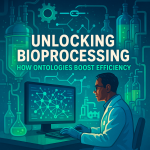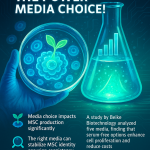🔬 This technology helps robots learn from expert scientists, mimicking tasks like cell suspension. Current automation cuts costs significantly, but challenges remain due to AI’s unpredictability.
💊 The pharmaceutical industry stands to benefit greatly, improving efficiency and reducing errors in production.
Introduction:
The article discusses the innovative application of artificial intelligence (AI) in automating the processes involved in cell therapy manufacturing, spearheaded by Multiply Labs in collaboration with Stanford University’s Laboratory for Cell and Gene Medicine. By leveraging AI imitation learning, the aim is to enhance operational efficiency and scalability in cell therapy production, which has traditionally relied on manual, artisanal techniques.
- AI imitation learning enables robots to mimic the precise movements of expert scientists, improving the reliability of cell suspension techniques.
- The innovative approach replaces manual programming with self-training mechanisms for robots, effectively “automating the automation” in the manufacturing processes.
- Initial experimental failures illustrate the complexity of replicating human motions but highlight the learning curve experienced by robots through imitation.
- Imitation learning is particularly useful for addressing unstructured tasks within cell therapy processes, such as mixing and resuspending cells.
- While promising, the implementation of AI in robotics necessitates strict safety protocols due to the inherent unpredictability of machine learning algorithms.
Conclusion:
The exploration of AI imitation learning in cell therapy represents a significant advancement towards automating complex biological processing tasks. As this technology evolves, it holds great potential for reducing operational costs and enhancing the efficiency of therapeutic developments. Future applications may expand into broader pharmaceutical practices, underlining the value of AI-driven automation in improving healthcare outcomes.







